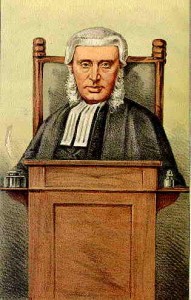Restoring Public Confidence in the Judicial System
“[A] lawyer should further the public’s understanding of and confidence in the rule of law and the justice system because legal institutions in a constitutional democracy depend on popular participation and support to maintain their authority.” Taken from paragraph six of the Preamble[1] to the Model Rules of Professional Conduct, this quote sets out our duty to educate the public.
In April 2009, then Wisconsin State Bar President Diane Diel discussed this very quote in a short article published in Wisconsin Lawyer magazine.[2] The article focused on the negative effect judicial elections have on the public’s confidence in the judicial system — discussing current Justice Michael Gableman’s allegedly unethical ad that aired during his campaign against Justice Louis Butler and his subsequent disciplinary hearing — and the ever-controversial topic of judicial recusals, focusing on whether judges should be required to recuse themselves from deciding cases in which they received campaign contributions from an interested party.
Diel’s article seems to have foreshadowed the current turbulence in the Wisconsin Supreme Court, which has led to plunging confidence in the judicial system.

